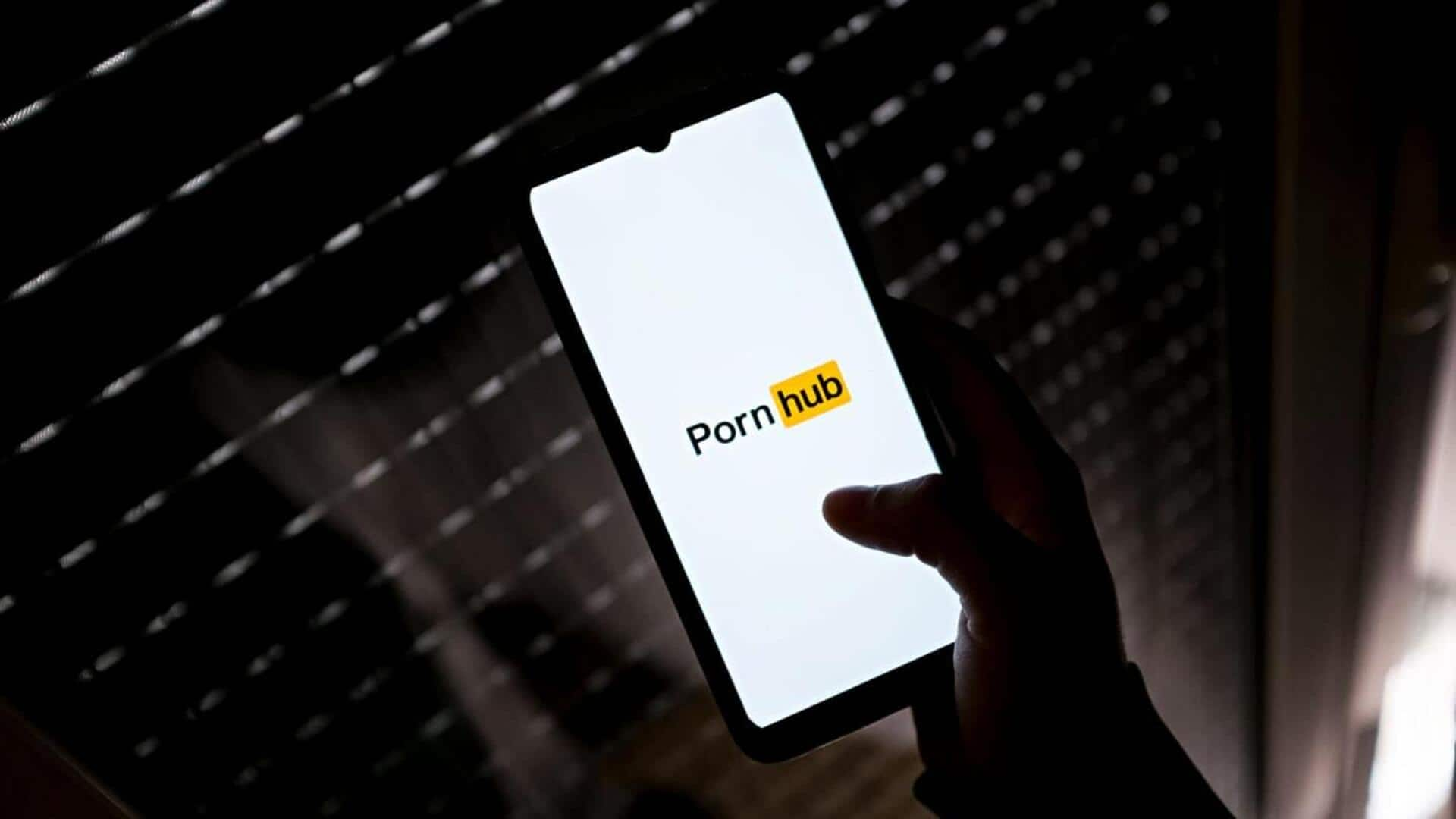
Why Pornhub wants tech platforms to verify age on device
What's the story
Pornhub's parent company, Aylo, has urged major tech players Apple, Google, and Microsoft to adopt device-based age verification in their app stores and operating systems. The request comes as a response to the company's declining traffic due to US and UK laws aimed at preventing minors from accessing adult content. Anthony Penhale, Aylo's chief legal officer, wrote in the letter that site-based age assurance methods have proven ineffective in keeping minors away from inappropriate online content.
Proposed solution
Aylo advocates for device-based authentication
Penhale's letter emphasized the need for device-based authentication as a more effective solution. He explained that once a user's age is verified through their phone or tablet, this information can be securely shared with adult sites via an application programming interface (API). This approach, he argued, would better protect minors from accessing inappropriate content online.
Traffic decline
Age verification laws impact Pornhub's traffic
The letters were sent after the implementation of age verification laws in the US and UK. These regulations require users to upload an ID or other personal documentation to prove they aren't minors before accessing sexually explicit content. As a result, Pornhub has seen a massive drop in traffic after withdrawing from most states with these laws. In Louisiana, where it was one of the few sites complying with the new law, traffic dropped by 80%.
Privacy risks
Pornhub's concerns over 3rd-party age verification
Pornhub has raised concerns over the privacy risks associated with third-party age verification. The company believes that users will simply turn to adult content on platforms that don't comply with these laws. Alex Kekesi, Pornhub's VP of brand and community, noted a massive increase in searches for alternative adult sites without age restrictions or safety standards at all.
Industry reactions
Tech giants' responses to age verification laws
Google's spokesperson Karl Ryan said the company is committed to protecting kids online, including developing new age assurance tools. However, he stressed that high-risk services like Pornhub will always need to invest in specific tools to meet their own legal obligations. Microsoft declined to comment on the matter while Apple reiterated its earlier stand, saying "age assurance should be applied at the service level, target specific design features that pose heightened risks, and enable tailored experiences for children."
Regulatory challenges
Aylo's stance on age verification laws
Aylo has criticized age verification laws for their ineffective enforcement. Kekesi said the sheer volume of adult content platforms has proven too challenging for governments worldwide to regulate at the individual site or platform level. She argued that device-based age verification, done once on a phone or computer, would preserve user privacy while prioritizing safety.
Global impact
Age verification laws and internet usage
The global wave of child protection laws is reshaping internet usage and affecting industries beyond porn, including gaming and social media. Starting December 10 in Australia, kids under 16 will be banned from Facebook, Instagram, X, YouTube, Reddit, and Threads as part of the government's social media ban. This trend highlights the growing influence of age verification laws on online platforms and services worldwide.